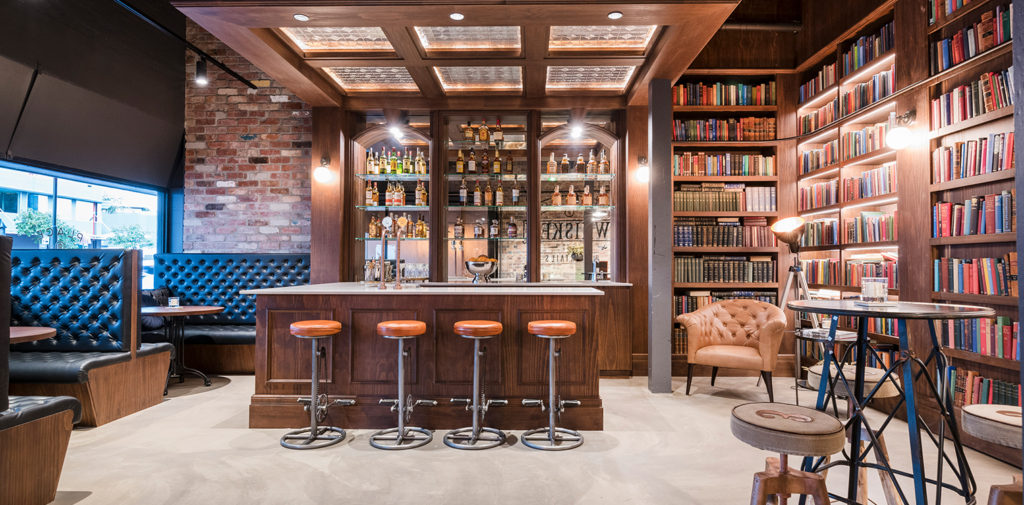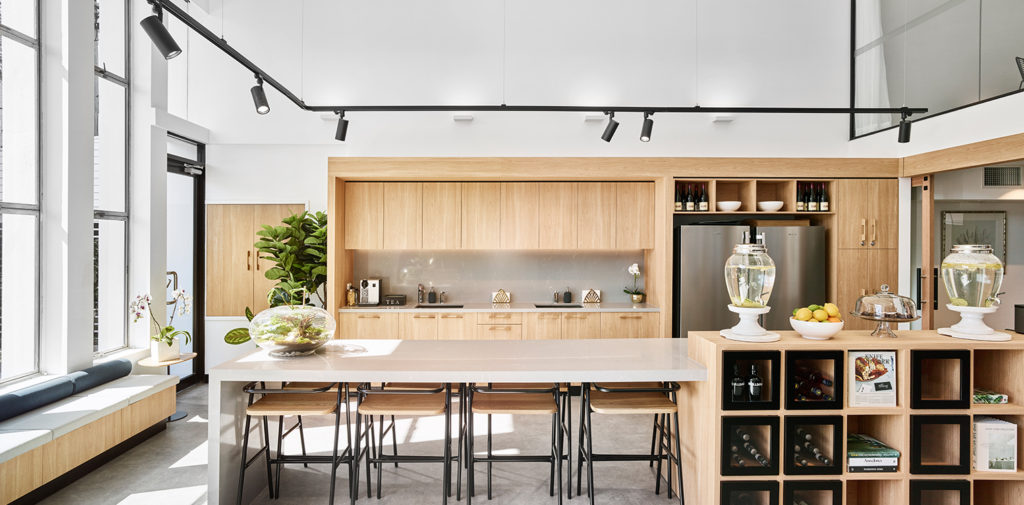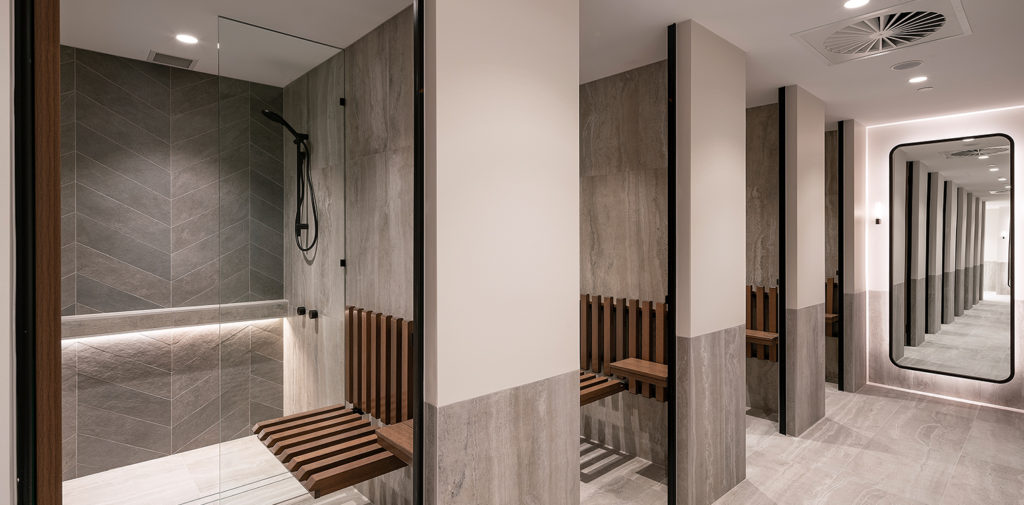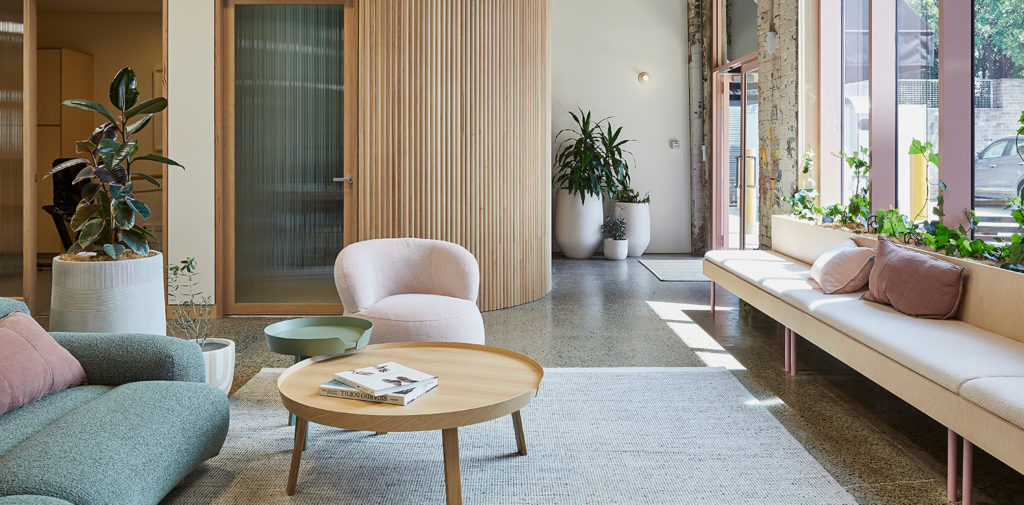BUZZ BUZZ | You’ve entered the chat

Are popular buzz words like, ‘Hybrid Workplace’ or ‘Cross-Sector Design’ hovering over your head? In a world where the only constant is change & the workplace environment is ANYTHING but the same – it can be difficult to keep up with the latest buzzwords, design trends + fit-out principles. So, before you get stung by change, let us break down these simple concepts.
It is likely that you are already familiar with the format of hybrid workplaces. The concept while not new, has received mass adoption due to the effects of COVID. Each company will have a slightly different hybrid workplace setup, but it generally consists of flexible working arrangement such as ‘work from home’ or ‘remote working’ options. Employees can flip between working from an alternative location & within the set office space. Despite receiving some relief in Australia from the pandemic many offices are continuing their hybrid workplaces. This has had a knock-on effect on how we perceive our time spent in the office. Your employees are now entering the workplace to collaborate, socialise & use innovative technology.
Cross-sector design refers to the incorporation of design elements from different sectors – including retail, hospitality & medical. The purpose of this design approach is to pull ideas from one or multiple sectors, to create an enterally new & unique workplace environment in your next fit-out or office refurbishment.
 BUILT BY UNITA | Place Estate Agents, Woolloongabba
BUILT BY UNITA | Place Estate Agents, Woolloongabba
Retail | This sector is known for its creativity & focus on brand connection. In retail design, ‘brand’ is an essential element that often shapes consumer awareness + interaction within a store. A well-designed retail space doesn’t just look to sell but rather offers an environment that facilitates connection. This has gained traction in workplace design, as the office becomes a way to solidify the concept of company culture. By harnessing the power of your companies’ brand, employees gain a highly tailored space that reinforces your company’s core values & becomes a point of difference for new staff. One of the major changes that the retail sector has made, to entice people back into physical stores post covid – is to provide elements that do not exist in online shopping. At the forefront of retail design is experience-driven spaces. This thought process can also be applied to workplace design – with spaces that are more creative, collaborative and connected. Try implementing an interactive social area or technology that is an asset to your workplace.
 BUILT BY UNITA | Cove Co-Work, Newstead
BUILT BY UNITA | Cove Co-Work, Newstead
Hospitality | The hospitality sector is known for creating leisure spaces that keep customers within a venue + encourage repeat patronage. They do this by creating an atmosphere & utilising bespoke joinery. Companies are re-imaging how the workplace experience can be enhanced, and with design genres already blurring the lines – more hospitality elements are being incorporated in workspaces. Multiple seating areas with custom joinery such as open staff rooms, coffee nooks & outdoor dining has encouraged staff socialisation & time spend in the workplace. Office fit-outs are beginning to create an environment that feels more like a hospitality space than the traditional office featuring, music, organised lunches + weekly events.
 BUILT BY UNITA | Christie Spaces, Brisbane
BUILT BY UNITA | Christie Spaces, Brisbane
Residential | Over the lockdown, your staff have spent more time at home, quickly becoming accustomed to the comforts of residential design. Employees have come to expect similar if not better-working facilities to justify their commute & meet their need for comfort. Many organisations are investing in high-quality residential amenities with shower facilities, multiple vanities and toilets. The influence of residential interior design is also affecting workplace interiors. Workspaces are now adopting a warmer + more home-like environment.
 BBUILT BY UNITA | Cingulum, Rosebery
BBUILT BY UNITA | Cingulum, Rosebery
Medical | It’s no surprise that the incorporation of medical design elements has risen in the workplace. The health + wellbeing of your employees is paramount and will continue to evolve. Many companies are witnessing the need for a reception desk as clients enter the work environment & foot traffic begins to resume. Clever storage solutions that give medical spaces more control over their supply chain are also being implemented in the office. Flexible floor plans that cater for decreases and surges incapacity are an asset to the medical sector and can also be beneficial for hybrid workplaces. Biophilic design elements are trickling through to workplace designs as mental health becomes a priority.


































